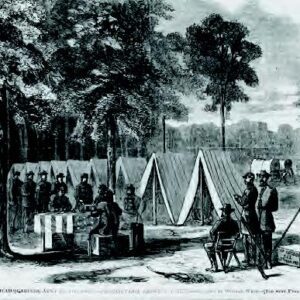November 18, 2024
APWU and USPS ‘Stop the Clock’ – What Does This Mean for You?
At midnight on Sept. 20, 2024, the APWU national agreement was set to expire. But, late in the evening, the National Negotiations Committee (NNC) made the unanimous decision to “stop the clock” so that our contract remains in effect, and we can continue negotiating with the Postal Service.
What does this mean? Since we have made progress in negotiations, your negotiating committee decided that it was in our best interest to not declare that the negotiating parties had reached an impasse, and we would continue to bargain with management.
Since the parties agreed to stop the clock, it allowed the provisions of the 2021-2024 national agreement to remain in effect. All contract articles and all Memorandums of Understanding (MOUs) in the back of the contract remain in full force and effect. Our grievance-arbitration process is still in effect. The no-layoff clause is still in effect. Management will still convert Postal Support Employees to career when they reach 24 months of relative standing in the same installation, the 50-mile limitation on excessing is still the standard, and those who are still progressing through the various pay-schedule steps will still earn additional steps. In simple terms—nothing has changed. Unfortunately, no additional general wage increases or cost-of-living adjustments (COLAs) will occur until we reach a successor agreement. The NNC is still attempting to negotiate further work rules and our economic package. The work towards reaching a voluntary agreement has not stopped.
We have two tracks moving forward. The first is to continue negotiating and preparing an agreement to present to the Rank-and-File Bargaining Advisory Committee, and the second is the focused and intense preparation for interest arbitration.
At the time of publication, we are continuing to negotiate, because we still have the hope and expectation of reaching a voluntary agreement. My staff is working on preparing a new written version of our next contract. This is the first step in being able to present a package to the Rank-and-File Bargaining Advisory Committee, and my department needs to have it ready in case we reach a voluntary agreement with management.
If we reach a voluntary tentative agreement, we will present the language, questions and answers, and other information, as needed, to the Rank-and-File Bargaining Advisory Committee who make the decision whether or not to send it to the general membership for a vote on ratification. If the committee determines the contract should go out for a vote, we will send a package to every individual member with an explanation of the changes and a copy of any tentative contract language. We will include a simple “yes” or “no” ballot so members can decide whether to accept or reject it. If a majority votes “yes,” the contract will go into effect. If the membership votes “no,” we go back to the negotiating table.
If we declare “impasse,” we would put the contract into the hands of an arbitrator. Each party selects one advocate/ arbitrator, and we must agree to a third neutral arbitrator to create the interest arbitration panel, who will then hear arguments from both sides and impose a contract. Even though the panel is three members, the neutral arbitrator ultimately makes the final decision on our contract.
It is always better for us to reach a voluntary agreement than to let one person decide our contract. But this is the process we have under our contract and the law. No matter what happens, your NNC is fi ghting to get you the contract you deserve. If the negotiating parties can’t reach it voluntarily, we will make the best case we can to influence the neutral arbitrator to impose the best contract possible.
Solidarity! ■



